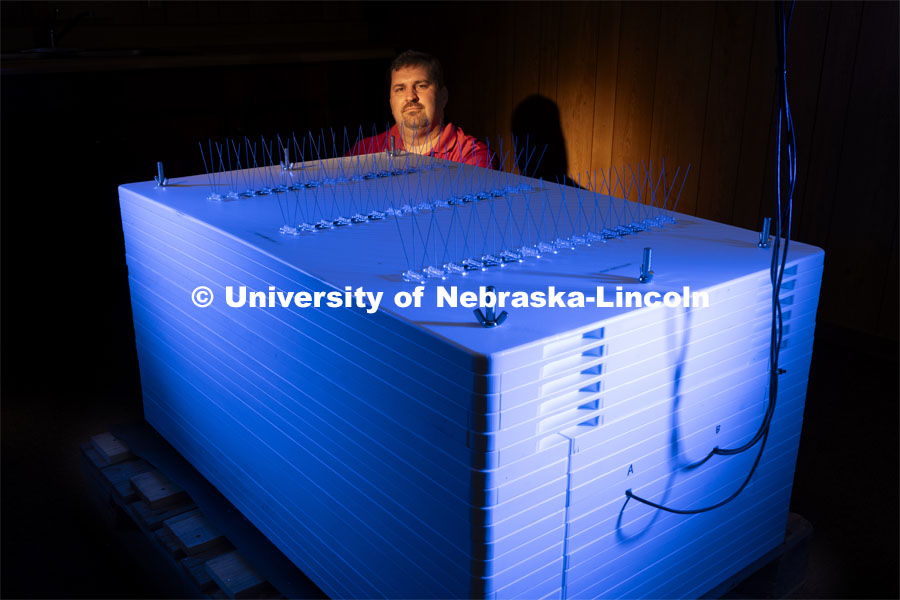
Title:
240621 Franz 010 (permalink)
Order Instructions:
To order this photo, send Craig Chandler an email and include the text '240621 Franz 010'.
Caption:
Trenton Franz, Professor of Hydrogeophysics at Nebraska, stands beside the newly installed neutron monitor, one of only three in the United States. The device, at UNL's Eastern Nebraska Research, Extension and Education Center near Mead, provides reliability to soil moisture readings collected by UNL and other institutions by removing distortions that cosmic rays introduce in the data. Funders for the device include the National Science Foundation and the U.S. Geological Survey. Franz is using neutron and cosmic ray detectors to see how solar radiation and solar energy such as those that caused Nebraska to view the Northern Lights is effecting precision farming including soil moisture detectors and the GPS in tractors. June 21, 2024. Photo by Craig Chandler / University Communication and Marketing.
Copyright:
© 2024, The Board of Regents of the University of Nebraska. All rights reserved.